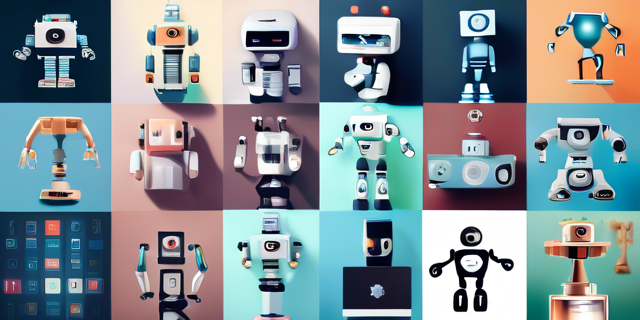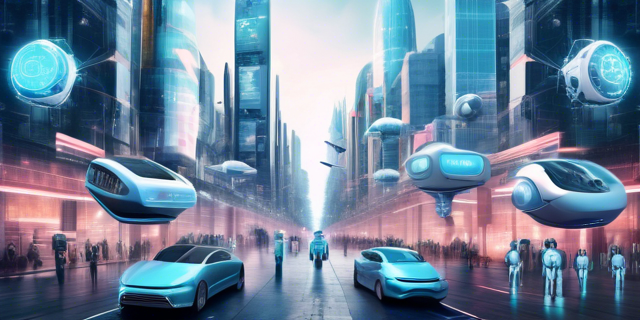Artificial Intelligence (AI) has rapidly evolved from a futuristic concept into an integral part of our daily lives, driving innovation across various industries. From healthcare and finance to entertainment and transportation, AI’s influence is far-reaching. This article explores the latest advancements in AI technology, highlighting the trends, innovations, and potential implications for the future.
AI in 2024: Key Innovations and Trends
As we move deeper into 2024, AI technology continues to push the boundaries of what’s possible. Here are some of the most significant trends and innovations shaping the AI landscape today
Generative AI: The Power of Creation
One of the most talked-about developments in AI is the rise of generative AI. This technology allows machines to create content, such as text, images, music, and even code, by learning from vast datasets. Tools like OpenAI’s GPT-4 and DALL·E have demonstrated the potential of generative AI to produce human-like text and artwork, blurring the lines between human and machine creativity.

Generative AI is transforming industries by enabling the creation of personalized content at scale. In marketing, for example, brands can use AI to generate tailored ads, social media posts, and product descriptions that resonate with specific audiences. In the entertainment industry, AI-generated scripts, music, and visual effects are becoming increasingly common, opening up new possibilities for creative expression.
AI-Powered Healthcare: Precision and Personalization
AI is revolutionizing healthcare by improving diagnostics, treatment planning, and patient care. In 2024, AI-powered tools are becoming more sophisticated, enabling precision medicine that tailors treatments to individual patients based on their genetic makeup, lifestyle, and other factors.
Machine learning algorithms are being used to analyze medical images, detect diseases early, and predict patient outcomes. AI is also helping to accelerate drug discovery by identifying potential compounds and predicting their effectiveness. Moreover, AI-driven chatbots and virtual assistants are enhancing patient engagement, providing personalized health advice, and streamlining administrative tasks for healthcare providers.
Autonomous Systems: From Vehicles to Robots
Autonomous systems, including self-driving cars and drones, are another area where AI is making significant strides. In 2024, these systems are becoming more reliable and capable, thanks to advancements in machine learning, computer vision, and sensor technology.
Self-driving cars are closer to becoming a mainstream reality, with major automotive companies and tech firms conducting extensive testing and development. These vehicles use AI to navigate complex environments, make real-time decisions, and improve safety on the roads. Similarly, drones equipped with AI are being used for tasks ranging from package delivery to agricultural monitoring, showcasing the versatility of autonomous systems.
AI Ethics and Governance: Addressing Challenges
As AI technology becomes more pervasive, ethical considerations and governance are gaining importance. In 2024, there is a growing focus on ensuring that AI is developed and deployed responsibly, with an emphasis on transparency, fairness, and accountability.
AI ethics is concerned with addressing issues such as bias in algorithms, the impact of AI on employment, and the potential for misuse of AI in surveillance and decision-making. Governments, organizations, and researchers are working together to establish frameworks and guidelines that promote ethical AI practices. Additionally, there is increasing interest in explainable AI, which aims to make AI decisions more transparent and understandable to humans.
AI in Education: Personalized Learning Experiences
AI is transforming education by offering personalized learning experiences tailored to individual students’ needs. Adaptive learning platforms use AI to assess students’ strengths and weaknesses, providing customized content and feedback that enhances learning outcomes.
In 2024, AI-driven educational tools are becoming more sophisticated, enabling teachers to better support their students and reduce the burden of administrative tasks. Virtual tutors, AI-powered grading systems, and intelligent content recommendations are just a few examples of how AI is making education more accessible and effective.
The Future of AI: Opportunities and Challenges
The rapid advancement of AI technology presents both opportunities and challenges. On one hand, AI has the potential to drive innovation, improve efficiency, and solve complex problems across various domains. On the other hand, it raises concerns about job displacement, privacy, and the ethical implications of machine decision-making.
As AI continues to evolve, it will be crucial for stakeholders to address these challenges while maximizing the benefits of AI. This includes fostering collaboration between governments, industry leaders, and researchers to ensure that AI is developed in a way that aligns with societal values and promotes the common good.
Conclusion
AI technology is advancing at an unprecedented pace, transforming industries and reshaping the way we live and work. From generative AI and precision healthcare to autonomous systems and personalized education, the latest AI innovations are driving a new era of possibilities. However, as we embrace these advancements, it is essential to address the ethical challenges and ensure that AI is used responsibly for the benefit of all. The future of AI is bright, and with careful stewardship, it has the potential to unlock immense value for society.

